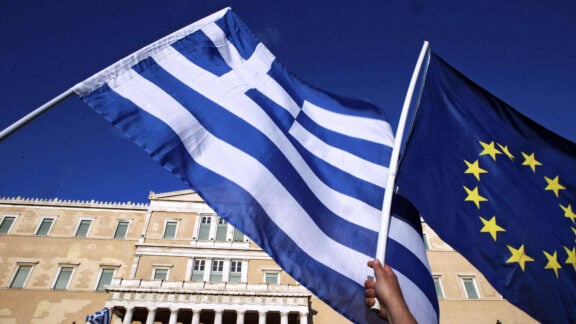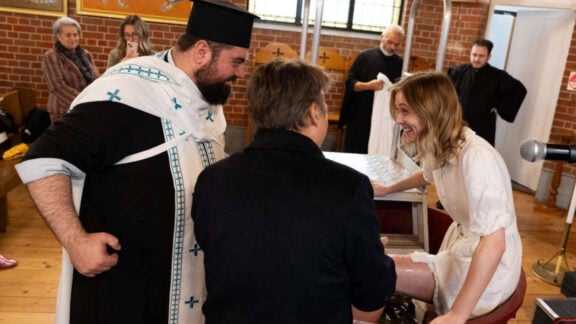If there’s one thing that Greeks love, that is a hero. They love to worship them, they love to elevate them to god-like status and what they love the most is give them a push from the top and see them fall down and break.
Because if there’s one thing that Greeks hate is a hero, anyone who stands out.
Never has this love-hate relationship been more clearly demonstrated than in the case of Giannis Antetokounmpo, who announced that he would not take part in the Greek basketball team’s effort to the Eurobasket preliminaries, due to a knee injury.
This was seen as a major insult to Greece, by both his foes and a part of his fanbase. The same person who was praised for his spectacular sportsmanship that made him an NBA star, is now dismissed as a fraud, a traitor even a conspirator, set to undermine his country’s efforts, in order to secure his own fortune.
To put things into perspective, some people are happy to call Giannis their hero, a Greek ambassador in the world’s most important basketball championship, as long as he’s always showing humility and gratitude to Greece and is always ready to play the Greek freak and put his talents to use for the common cause: the eternal quest for national pride.
For this, Giannis should be willing to jeopardise everything. He should be willing to risk his multi-million contract and his career, to serve a country which is still struggling to accept him, which did not grant him citizenship until the last minute, despite him being born in Greece and having known no other country, language, culture.
And if this was not enough to divide Greeks, there are always the age-old civil war wounds to scratch. This time around, the chance presented itself in the form of an official EU event, a convention hosted by the Estonian government, which now holds the rotating presidency of the European Union, on the “The Heritage in 21st Century Europe of the Crimes Committed by Communist Regimes”.
The Greek Minister of Justice, Yorgos Kontonis, turned down the invitation, issuing a harsh statement in which he accuses the Estonian government for politicising its presidency, dangerously focusing on vilifying the Left, at a time when Europe faces a real threat from the rise of far-right extremism and neonazism.
The EU parliamentary party of the Left sidelined with the Greek government, while the Estonian presidency responded by adding Nazism to the title, equalizing the totalitarian regimes. It didn’t matter.
What ensued in Greece was another round of the Civil war, with the Opposition, alongside most of the media, accusing the Greek government of isolating the country from the rest of the EU and its values blinded by its adherence to ‘Stalinism’.
This has been going on for quite some time. Unable to attack Tsipras and his gang on its actual policies – which are as neo-liberal, as it can get, dictated by the countries lenders, and are the same that the opposition has agreed to implement, once in power – his critics play the ‘stalinist’/ leftist card, despite nothing in the Syriza government policy having anything to do with the left.
In a way, the whole thing was a win for marxism – or at least, the famous aphorism that history repeats itself as farce.
The farcical dimension of this was made clear, when the actual conference took place, and it was revealed that only seven – out of the 27 country members of the EU took part.
Talk about being isolated by the rest of Europe.
Still, this week was not only about division.
Once again, we were united in our mourning for the passing of actress Zoe Laskari, one of the brightest stars of the Greek movie screens of the ’60s and arguably the most genuine sex symbol to ever grace the star system.
Sex, once again, brought Greeks together.
This and the respect and worship of a person which continuously reminded us what it means to be beautiful, joyful, carefree and irreverent to conventions. What it means to just be yourself and not expect others define you.
Not a bad legacy, after all.








